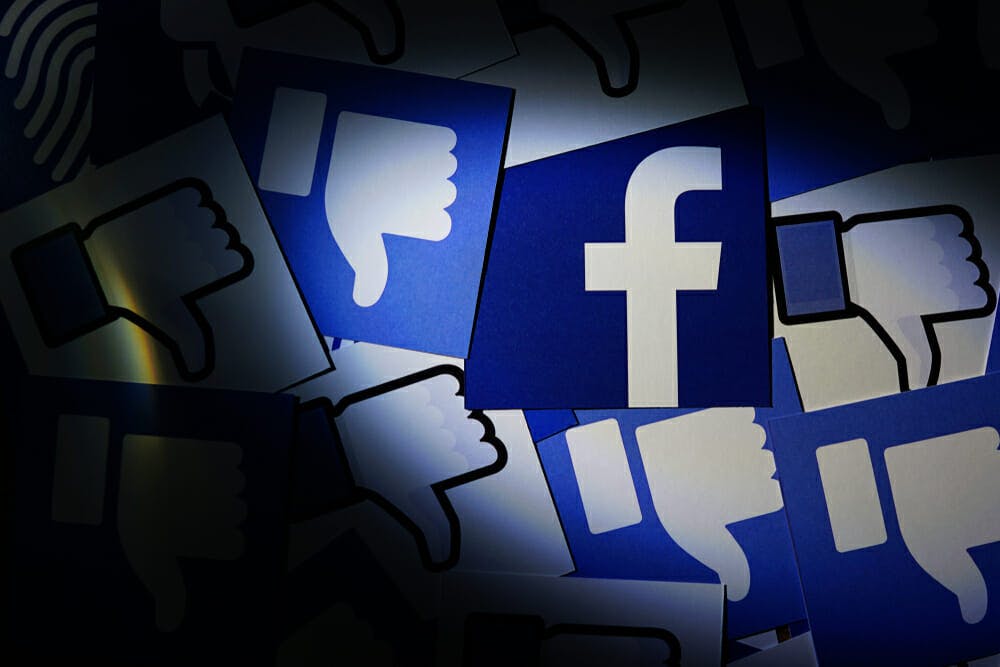Facebook announced in March that it would use artificial intelligence to detect revenge porn before it happens, but the company told the Daily Dot it does not intend to communicate its findings with victims.
The social media giant wants to use image learning and artificial intelligence to detect nudity before anyone reports it. “If the image or video violates our Community Standards, we will remove it, and in most cases we will also disable an account for sharing intimate content without permission,” Facebook’s initial announcement said. It did not disclose how the AI would differentiate images shared nonconsensually from those shared consensually. The company will offer an appeal process in case someone believes a mistake was made.
“Once content is taken down from the site, we will hash it or create a digital fingerprint of it so we can catch any attempts to upload that image again,” a Facebook spokesperson told the Daily Dot.
However, the company said it does not plan to reach out to victims to notify them if their images were shared nonconsensually.
On one hand, it helps victims avoid the humiliation of having strangers or friends looking at their naked pictures. But on the other, it’s apparently less likely that perpetrators of revenge porn will face justice in these circumstances.
It’s a ballooning problem: From celebrities to regular users, 10 million people faced threats of revenge porn in the U.S. in 2016, according to Data Society. Revenge porn is defined as non-consensual intimate images shared on social media, not necessarily within a sexual relationship. Celebrities like Jennifer Lawrence, Kate Upton, and Kaley Cuoco were victims of revenge porn in the past.
“Having your privacy violated constantly isn’t a problem if you’re perfect. But if you’re human, it’s terrifying. I’m always waiting to get blindsided again,” Lawrence told Vogue in 2017. Intimate images of Lawrence were hacked from iCloud and widely disseminated in 2014.
This year New York became the 42nd state in the U.S. to criminalize revenge porn and passed the first law on the matter about a year ago.
Dr. Spring Chenoa Cooper, a professor of Public Health at City University New York, was one of the first people to file a lawsuit under the revenge porn law.
She found out she was a victim of revenge porn when some of her Facebook friends reached out to tell her they have received naked pictures of her on Facebook Messenger. She had just broken up with her boyfriend, and he was the only person who had access to these pictures, she told the Daily Dot. She quickly realized that taking these pictures down was more challenging than she thought: “Videos and photos went back up about 12 times,” she said, and she not only had problems with getting help from authorities, but also with Facebook.
Her photos were shared through an account that had no friends or profile picture. First, she said, contacting Facebook proved difficult, so she just reported the account—but the site almost instantly responded that the account looked fine and no action would be taken against it.
Fighting revenge porn on the social media platform is a complicated issue, Cooper said. But she said that AI is a good way for victims to fight the problem. One of the hardest parts for Cooper was strangers looking at her pictures repeatedly. If facial recognition technology was advanced enough, Cooper said, it would a good way to fight revenge porn, along with letting people know about it (without re-traumatizing them with photos).
Kelsey Bressler, who told the Daily Dot she was stalked by an ex-boyfriend for 10 years and found out her photos were up for three months before she discovered them, is a member of the Badass Army, a non-profit helping victims of revenge porn. She told the Daily Dot, “I understand why Facebook wouldn’t want to be involved in proactively reaching out to victims,” as it takes a good amount of “bedside manner” to do so. She also thinks that Facebook’s facial recognition technology is advanced enough to identify victims. (Bressler has a tech background).

